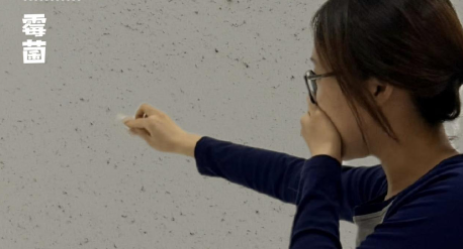Cómo la lluvia puede llevarte de lesiones a la ICU

Title: How Rain Can Lead You from Injuries to the ICU Profile: Rain can trigger meningitis. It warns about symptoms and the importance of prompt medical attention to prevent it. Keywords: ['Health.', 'Disease Prevention'] Source: Taihe Hospital of Changsha Editor: YT.
Recently, rain has fallen unexpectedly. When going out for a walk or on the way to work, if you do not carry an umbrella, it is inevitable to get wet. However, you may have never thought that a simple rain, besides making you a wet cat, hides serious health risks.
Case 1:
In August of this year, Ms. Hai from Henan encountered a heavy rain while outdoors. The raincoat she wore did not cover her head, and she was exposed to the rain for more than ten minutes. Upon returning home, she took care of bathing her child and forgot about herself, resulting in convulsions, excessive salivation, and a brief memory loss by night, being diagnosed with viral meningitis and hospitalized for treatment.
Case 2:
A similar situation occurred in Changsha, Hunan. A 29-year-old nurse, after finishing his night shift, got soaked in the rain. That night he developed a fever along with headache symptoms. The next day, his condition deteriorated rapidly; his body temperature reached 39.5 °C, suffering from severe headache, nausea, vomiting, photophobia, and neck stiffness, and he even experienced episodes of confusion. After a CT scan of the brain and a lumbar puncture, the man was diagnosed with purulent meningitis and, given his serious condition, was transferred to the intensive care unit for treatment.
The reason that rain could lead to meningitis mainly relates to the immune system of the body and parasitic bacteria. When it rains, the body's temperature drops, potentially leading to reduced immune function and increased risk of infection. Particularly in cold and humid environments, certain bacteria and viruses may more easily enter the body, especially through the upper respiratory tract.
Meningitis is often caused by infections from bacteria, viruses, or fungi, which can spread through the respiratory tract or be triggered by the external environment. After being soaked in cold rain, the immune system's response capability weakens, which may allow latent pathogens in the body to become active, thus triggering meningitis.
In addition, if wet clothes are not promptly changed after getting soaked, low body temperature may increase the risk of infection. Therefore, keeping the body warm and dry after rain is one of the important measures for preventing meningitis.
Wang Qi, deputy director of the neurology department at Taihe Hospital in Changsha, explains that getting wet in the rain does not directly cause meningitis but does significantly increase the risk of developing it.
Because once a person gets wet in the rain or catches a chill, the body's immunity decreases dramatically in a short time, and the defensive function of the respiratory mucosa also weakens. At that moment, the 'bad' agents hiding in the environment, such as bacteria, viruses, fungi, and other pathogens, will seize the opportunity to infiltrate, beginning to invade the central nervous system and, in turn, causing dangerous meningitis.
Meningitis primarily includes the following types: 1. Bacterial Meningitis: Caused by bacterial infections, common pathogens include meningococci, streptococci, and Escherichia coli, generally requiring emergency medical treatment. 2. Viral Meningitis: Caused by viruses, common viruses include adenoviruses, mumps viruses, and coxsackieviruses. Symptoms are generally milder, with faster recovery. 3. Fungal Meningitis: Caused by fungal infections, usually occurring in immunocompromised populations, such as HIV patients. 4. Tuberculous Meningitis: Caused by Mycobacterium tuberculosis, usually related to pulmonary tuberculosis, and is more severe. 5. Non-infectious Meningitis: Can be caused by drugs, cancer, systemic diseases, or other non-infectious factors. The above are the main types of meningitis, and different types may vary in treatment and prognosis.
Meningitis refers to diffuse inflammatory changes of the soft membranes of the brain and is a disease often caused by the invasion of various biological pathogens, such as bacteria, viruses, fungi, and tumors that affect the soft membranes and spinal membrane. Anyone, regardless of age, can contract meningitis, with children, the elderly, patients with chronic diseases, those who stay up late or are fatigued, and individuals with immune deficiencies facing a higher risk.
Meningitis has four types, each with different pathogenic causes and risks: bacterial meningitis, which has an acute onset and rapid progression, requires immediate treatment; viral meningitis is relatively common, and most patients respond well to treatment, although timely medical attention is still necessary; fungal meningitis occurs more frequently in individuals with weakened immune systems and, although rare, should not be ignored; finally, parasitic meningitis, while uncommon, is very serious once it occurs.
The 'danger symptoms' of meningitis: do not confuse them with a cold!
The initial symptoms of meningitis are similar to those of a cold, such as fever, headache, vomiting, and lack of energy. However, symptoms usually progress rapidly; in severe cases, from the onset of the disease to death can occur in just 24 hours.
It is particularly worth noting that if you have recently been caught in the rain or continue to feel unwell, once you experience persistent high fever, severe headache, frequent vomiting, neck stiffness, lethargy, confusion, convulsions, or abnormal mental behavior, be sure to go to the hospital immediately, do not delay!
Doctor hits the board: if 'high fever + neck stiffness + severe headache' appears, seek medical attention immediately!
How to treat it?
The key to meningitis treatment lies in early identification, rapid diagnosis, and prompt treatment. Treatment for meningitis varies according to the pathogen causing the infection; the most common pathogenic microbes involve antiviral, antibacterial, antituberculous, antifungal, and antiparasitic treatments. Besides specific treatments for pathogenic microbes, managing symptoms is crucial, such as handling high fever, controlling seizures, reducing intracranial pressure, and decreasing brain edema. Supportive nutritional treatment includes maintaining the body's homeostasis, improving enteral and parenteral nutrition, as well as providing appropriate care.
To prevent meningitis, you must remember these tips!
For vulnerable groups such as infants, young children, and the elderly, vaccination is an important measure to prevent meningitis.
Currently, several meningitis vaccines have been introduced in the country, such as type A meningitis vaccine and Haemophilus influenzae type b vaccine. However, vaccination does not guarantee efficacy against all types of bacteria and cannot cover the entire population. In daily life, the prevention of meningitis still mainly relies on strengthening personal protection.
1. Avoid rain.
Remember to check the weather forecast before going out; if it may rain, it's best to prepare rain gear in advance to avoid getting soaked.
2. Act promptly.
If you accidentally get caught in the rain, immediately change wet clothes, take a hot shower, dry your hair, and keep warm upon returning home.
3. Improve immunity.
It is important to maintain a healthy lifestyle, including going to bed and getting up early, avoiding staying up late. Additionally, you should consume more vegetables and fruits to ensure a balanced diet. Proper exercise, such as running, swimming, or jumping rope, also helps to strengthen the body.
4. Maintain hygiene.
Wash your hands frequently, especially before meals and after using the bathroom. Do not share glasses and utensils with others, avoid contact with animals of unknown origin, and cover your mouth and nose with a tissue when coughing or sneezing to prevent the spread of viruses and bacteria.
5. Consult a doctor timely.
When symptoms of fever and headache appear, do not self-medicate. It is important to seek medical attention in a timely manner for diagnosis and timely treatment.
Taihe Hospital of Changsha kindly reminds you: during the season of high temperatures and much rain, the weather is variable. Before going out, check the weather and take an umbrella with you. If you get wet, clean and change immediately. If you experience symptoms such as headache, high fever, or neck stiffness, do not hesitate to seek medical attention immediately.
Follow @HunanMedicalChat for more health information and scientific dissemination.
Editor: YT
© 2025 Tribu Salud.


